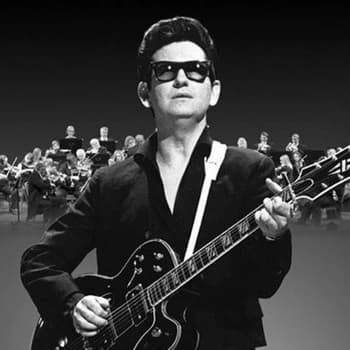
❤️ A Timeless Elegy for Love’s Fading Light ❤️
There are some voices that seem to carry the very dust of memory, a resonance that goes beyond simple notes and into the deep canyons of the human heart. The voice of Roy Orbison is one of them. For those of us who grew up with his soaring baritone soundtracking our own heartbreaks and triumphs, the sheer emotional weight of a song like “After the Love Has Gone” hits differently. It’s an aching, reflective masterpiece that speaks directly to the universal experience of loss and the hollow echo that remains once passion has fled.
Despite the fact that its sound feels so authentically Orbison, drenched in the signature melancholia and sweeping orchestral arrangements we cherish, “After the Love Has Gone” did not chart as a major single in the US or UK upon its release. This is crucial context: the song wasn’t a product of his 1960s heyday, nor did it share the immediate post-mortem triumph of his smash hit, “You Got It,” from the critically acclaimed Mystery Girl album. Instead, it emerged posthumously on the 1992 compilation album, King of Hearts, four years after Orbison’s sudden passing. The album itself reached a modest peak of No. 179 on the US Billboard 200 and No. 23 on the UK Albums Chart.
The very existence of King of Hearts and the inclusion of tracks like this one form a poignant epilogue to the career of the Big O. Recorded between 1985 and 1992, the album is a collection of material he either recorded late in life or left unfinished. “After the Love Has Gone,” co-written by Roy Orbison and Jerry Lynn Williams and produced by the legendary Don Was, is one of those deeply evocative tracks that reminds us just what a loss his early death was. It showcases the timeless quality of his writing, even as he was embracing the production techniques of a new decade.
The meaning of the song is laid bare in its title, yet its impact lies in the way that fading light is described. It’s not about the moment of conflict or the final, dramatic goodbye; it’s about the aftermath—the quiet, desolate space where you realize what you’ve lost is truly gone forever. The lyrics speak of silence, of a house that no longer feels like a home, and the devastating recognition that “all that’s left is loneliness, and a memory.” For listeners of a certain age, who have navigated the winding, often treacherous path of long-term relationships, divorce, or the loss of a spouse, that sentiment is almost too real to bear. It bypasses the head and goes straight for the gut, reminding us of the cost of deeply loving another person.
It’s a testament to the enduring genius of Roy Orbison that even in these later, archival recordings, his voice retains its incredible power—that crystalline, three-octave-plus range that could turn a simple ballad into a monumental expression of human despair. He never needed to shout to convey pain; his quiet vulnerability, cloaked behind those dark glasses, spoke volumes. “After the Love Has Gone” is not merely a song, but a meditation on the melancholy beauty of a love that has expired, a piece of musical archaeology that allows us one last, lingering look into the soul of one of rock and roll’s most unique and heart-rending artists.